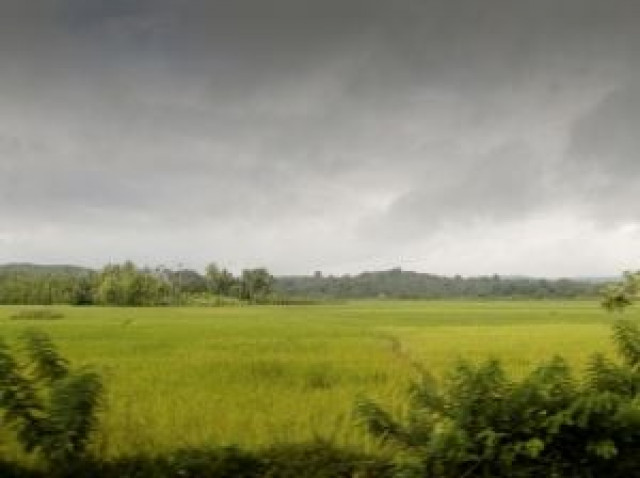Monsoon: Ongoing rain spell a boon for Potohar farmers
Central, northern Punjab expected to see rains from July 20 to 25; high crop yields expected.

Malik said this spell of monsoon rains is predicted to remain over Central and Northern Punjab from July 20 to 25, barring a day or two in between. PHOTO: FILE
The ongoing spell of rains, which has brought relief from the heat for residents of the twin cities, will also benefit farmers of the Potohar region.
Pakistan Meteorological Department (PMD) National Agromet Centre Director Dr Khalid Mahmood Malik said rains at this time of the summer assist the growth of pulses in the Potohar fields.
“The pulses require less moisture in the soil during the sowing season,” said Malik. “But once they are sown, sprays of water, such as those provided by the ongoing rains, boost the crops.”
He said the current rains are like “gold” for the Potohari farmers because of the high crop yields they help produce.
The Potohar region includes Rawalpindi, Chakwal and Jhelum districts. It is bounded on the north by the Margalla Hills and on the south by the salt range.

PMD’s National Weather Forecasting Centre has predicted more rains for Islamabad and Rawalpindi throughout this week. PMD meteorologists expect scattered rain and thunder showers in the twin cities, mostly during the nights and early mornings, till Sunday.
Up until Wednesday afternoon, Rawalpindi and Islamabad had received 32mm and 22mm of rain respectively over a 24-hour period, according to the PMD. The maximum temperature recorded during the same period was 33 degrees Celsius for both cities.
From Sunday onwards, the spell of rains in north Punjab including the twin cities will pick up because of a confluence of stronger monsoon currents and the western weather system, the PMD predicts.
Malik said this spell of monsoon rains is predicted to remain over Central and Northern Punjab from July 20 to 25, barring a day or two in between. He said this spell could also benefit the rice and cotton crops in Central Punjab.

He said Pakistan receives rain during the summers due to the eastern monsoon system, which if converged with the westerly winds that arrive from the north, increases the strength of the rains.
Senior climate change expert Qamaruz Zaman Chaudhry said the westerly wave attracts moisture as it passes over Pakistan, pulling the monsoon system towards the country.
He said the massive floods in northern India in June were due to an unusually long interaction of the westerly winds with the monsoon system.
However, both Malik and Chaudhry agreed that the interaction of these two systems in Pakistan at the end of July is expected to result in normal rains, not floods.
Still, Chaudhry cautioned that “we should not be ignoring the surprises” this convergence can potentially unleash.
Published in The Express Tribune, July 18th, 2013.


















COMMENTS
Comments are moderated and generally will be posted if they are on-topic and not abusive.
For more information, please see our Comments FAQ